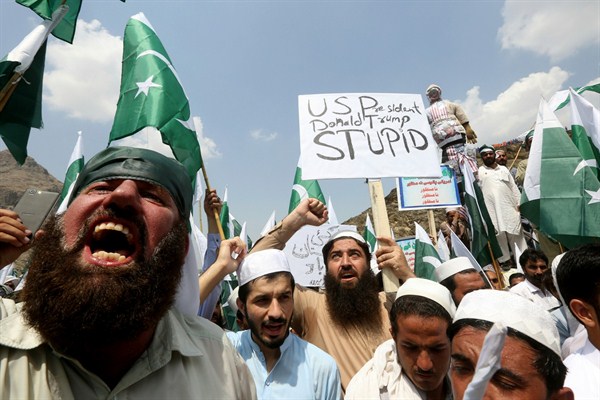U.S. President Donald Trump’s strategy in Afghanistan, unveiled last month, emphasizes a “new” regional approach that his administration claims will finally produce better results in America’s longest war. Unfortunately, it is unclear how new such a regional approach really is, whether the administration means to follow through on it, and if it is prepared to grapple with the potential ramifications.
In his visit to the United States last week for the United Nations General Assembly, Afghan President Ashraf Ghani praised Trump’s approach, especially “the Pakistan component of it.” But the Trump administration has been short on details. The regional vision Trump outlined in late August could be summed up as “Pakistan is bad, India is good” without losing too much in the way of nuance.
Tackling the Afghan war from a broader regional perspective is wise but not new. Former President Barack Obama’s own strategy in Afghanistan emphasized “a regional approach”—it even declared that the U.S. would “for the first time … treat Afghanistan and Pakistan as two countries but one challenge.” The Obama White House also addressed the need to better involve India by first creating a new “Contact Group for Afghanistan and Pakistan,” of which India would be a member, and then starting a U.S.-Afghanistan-India trilateral dialogue.

